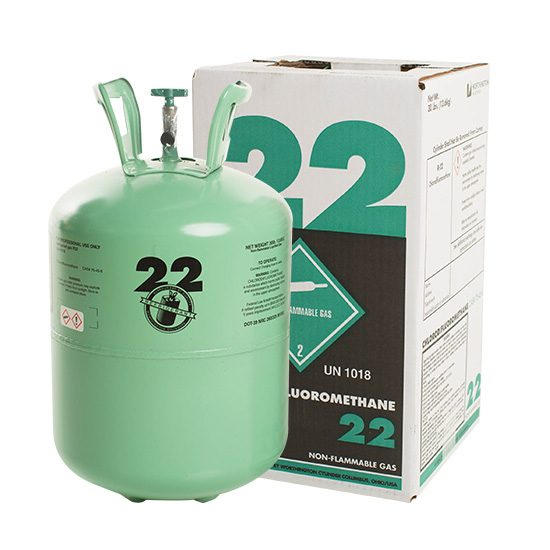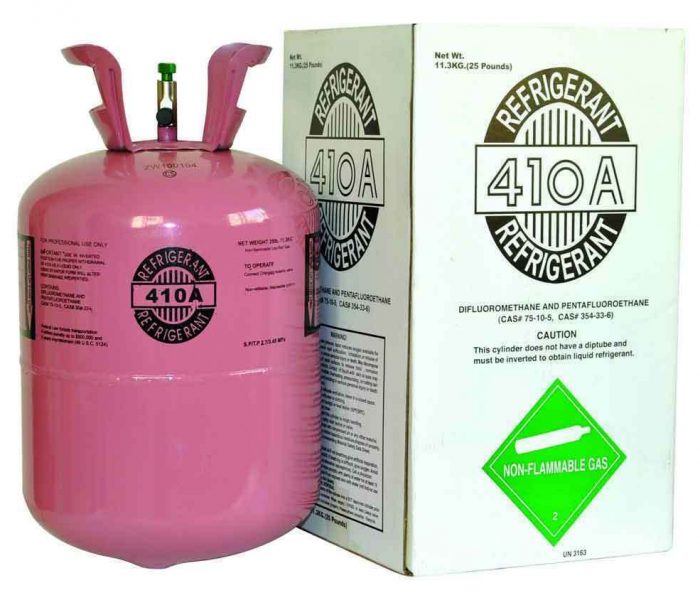It’s not unusual for Georgia’s summer season to reach a temperature of 90 degrees Fahrenheit or higher. With high temperatures, you will likely want to turn down the thermostat and blast your air conditioner.
Unfortunately, if your system is low on AC coolant (AKA Refrigerant), your air conditioning system won’t provide the cold air you need. If you’re not familiar with AC coolants, use the guide below from Service Emperor to learn everything you need to know.
What Is AC Coolant?
Also known as refrigerant, Coolant is a chemical cooling agent inside AC systems that cools air through a heat exchange. It flows through the appliance’s interior coils on a closed loop to remove warmth from the air that blows over their surface.
Your AC system must have refrigerant to function correctly. Because the chemical moves on a closed circuit, it should never run out. If your cooling system’s refrigerant is low, the system likely has a leak somewhere and will need a refrigerant recharge or replacement.
Types of Refrigerant for Air Conditioning Systems
Freon or R-22 is a trademarked name for hydrochlorofluorocarbons or HCFCs, the most common type of AC refrigerant up until 2004. People often use the term “Freon” interchangeably with “coolant” and “refrigerant.” However, this specific type of chemical was phased out in 2020 because it’s not eco-friendly.
Other types of AC coolants include:
- Chlorofluorocarbons (CFCs): Contributes to greenhouse gas emissions and is no longer in production as of 1994
- Hydrofluorocarbons (HFCs): Contains zero chlorines and is more eco-friendly than other refrigerants
HFCs are not only better for the environment than Freon; they also improve the efficiency and functionality of cooling systems. You will experience several benefits with the increased efficiency, such as lower energy bills and temperature consistency.
Air Conditioning System R-22/R-410A Phase-Out

Though most older air conditioners used Freon as their refrigerant, this HCFC is not environmentally friendly. The colorless gas contributes to the depletion of the ozone layer and climate change. As a result, the Environmental Protection Agency banned the production of appliances using Freon in the hopes of phasing out HCFCs.
Newer air conditioning units use alternative coolants such as R-410A, an HFC, in place of Freon. Also known as Puron, R-410A is more environmentally friendly because it won’t deplete the ozone. As a HFC though, R410a is still a potent greenhouse gas and must be handled correctly.
Replacement Types
If you still have a Freon AC system with a leak, heating and cooling contractors still offer repair services for your existing air conditioner, but using Freon is not the best solution. You can upgrade the coolant in an older AC unit with R-410A, but only after a contractor retrofits the coils in your unit to accommodate the upgraded product.
If the existing coils are not ideal for retrofitting, the best solution may be a total AC replacement. These systems have an average lifespan of 15 years, so if your existing system is ten years or older, it’s best to upgrade to a newer, energy-efficient model.

Five Signs Your Refrigerant Is Low
Air conditioners that are low on Freon will exhibit warning signs. Some symptoms of low AC coolant may also indicate other issues within the system. You will need to receive a diagnosis from an HVAC contractor if your system isn’t working properly, and they will fix the problem accordingly.
1. Warm Air Blows From Interior Vents
You expect your AC system to disperse cool air from your ducts. Warm or hot blowing vents are usually a clear indicator of low refrigerant. It means that the amount of existing refrigerant amount is not sufficiently absorbing warm air.
Your air conditioner may also experience this issue if the air filter is dirty. A clogged air filter reduces airflow through the AC unit. You can prevent this issue by cleaning or replacing the air filter once a month.
2. You Have High Energy Bills
If you maintain a consistent temperature in your house, but your energy bill keeps increasing, the problem could be an AC coolant leak. Functional AC units blow hot air over the evaporator coils. When it hits the coil, a heat transfer occurs. The refrigerant absorbs heat and disperses it outdoors while a fan blows cool air into your house.
When an AC unit has low coolant levels due to leaks, the system will struggle to absorb warmth and circulate cool air inside the home. If your cooling system has an AC coolant leak, the system will consume more energy, work harder, and run continuously, causing your electric bills to increase dramatically.
3. Evaporator Coil Has Frost or Ice on It
When your AC unit’s refrigerant lines have sufficient coolant, they should absorb heat and carry the warm air out of your home. If the AC unit has low refrigerant levels due to a leak, the evaporator coil will become cool enough to change the refrigerant from a gas form to a liquid. A cold evaporator coil will freeze the excessive condensation on the lines, producing visible signs of ice or frost.
4. Air Conditioner Produces a Hissing Sound
Your air conditioning unit should emit a gentle hum while it runs, but it shouldn’t hiss. If you hear a distinct hissing noise coming from your HVAC unit, it’s likely coming from small holes or cracks in the refrigerant line.
Using a compressor, refrigerant lines stay pressurized to absorb enough heat and provide cooling. As a result, even a small tear can forcefully push the gas through the hole, creating a high-pitched hiss. However, gurgling sounds usually point to a large opening in the line.
5. House Has High Humidity
The air conditioner is responsible for cooling your home, but it also keeps the humidity in your house at reasonable levels. With insufficient coolant, your home may feel humid and stuffy, and it can increase the risk of mold and mildew growth.
Can I Replace My Own AC Coolant?
Some people think they can replace their residential AC coolant by themselves. But, unfortunately, recharging coolant isn’t as easy as topping off the fluids in your car.
AC coolant is hazardous. Attempting to perform your own refrigerant recharge could lead to refrigerant poisoning, including symptoms like frostbite, nausea, and ear, throat, and eye irritation. Leave this job to the professionals.
Keep your heating and cooling systems in excellent condition all year long by contacting the HVAC professionals at Service Emperor. Our skilled technicians have been serving the Savannah GA community for years.
We have the skills to handle refrigerant replacement and repair cooling and heating systems. Call (912) 231-5430 today to schedule a service.

